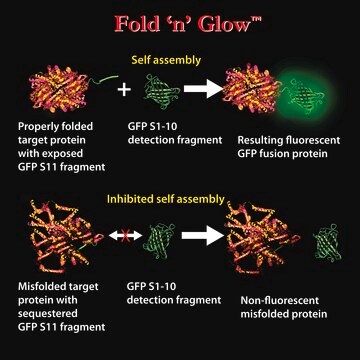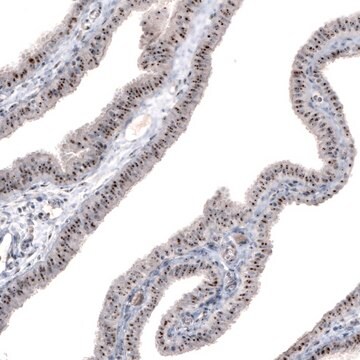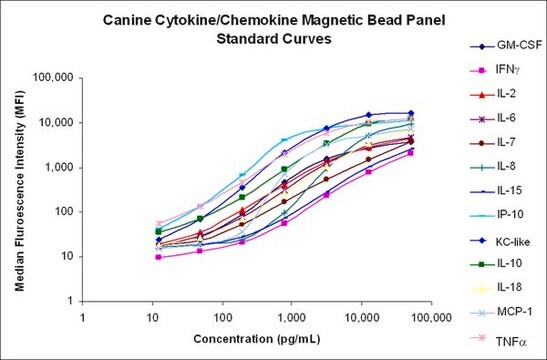Wszystkie zdjęcia(1)
Key Documents
About This Item
Kod UNSPSC:
12352204
NACRES:
NA.25
Polecane produkty
Postać
solution
Poziom jakości
metody
microbe id | specific enzyme detection: suitable
Warunki transportu
dry ice
temp. przechowywania
−20°C
Opis ogólny
GreenUniversal Detection Reagent is formulated with green fluorescent protein (GFP),which is a part of the split fluorescent protein (FP) system that may be usedto quantify the expression level of a tagged protein of interest (POI).
Zastosowanie
The S1-10 Universal Detection Reagent is provided as a ready-to-use solution for use with the In Vitro "Fold ′n′ Glow" Solubility Assay Kits:
This page may contain text that has been machine translated.
Kod klasy składowania
10 - Combustible liquids
Klasa zagrożenia wodnego (WGK)
WGK 2
Temperatura zapłonu (°F)
Not applicable
Temperatura zapłonu (°C)
Not applicable
Certyfikaty analizy (CoA)
Poszukaj Certyfikaty analizy (CoA), wpisując numer partii/serii produktów. Numery serii i partii można znaleźć na etykiecie produktu po słowach „seria” lub „partia”.
Masz już ten produkt?
Dokumenty związane z niedawno zakupionymi produktami zostały zamieszczone w Bibliotece dokumentów.
G S Waldo et al.
Nature biotechnology, 17(7), 691-695 (1999-07-15)
Formation of the chromophore of green fluorescent protein (GFP) depends on the correct folding of the protein. We constructed a "folding reporter" vector, in which a test protein is expressed as an N-terminal fusion with GFP. Using a test panel
Stéphanie Cabantous et al.
Nature biotechnology, 23(1), 102-107 (2004-12-08)
Existing protein tagging and detection methods are powerful but have drawbacks. Split protein tags can perturb protein solubility or may not work in living cells. Green fluorescent protein (GFP) fusions can misfold or exhibit altered processing. Fluorogenic biarsenical FLaSH or
Nasz zespół naukowców ma doświadczenie we wszystkich obszarach badań, w tym w naukach przyrodniczych, materiałoznawstwie, syntezie chemicznej, chromatografii, analityce i wielu innych dziedzinach.
Skontaktuj się z zespołem ds. pomocy technicznej





